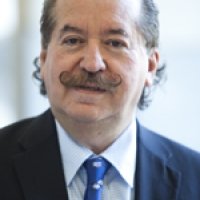Citizen Security in Venezuela
Venezuela has the highest homicide rate in South America, and represents the most dramatic deterioration of urban violence in South America. According to the UN, Venezuela’s murder rate is exceeded only by that of Honduras and El Salvador, two countries ravaged by gang violence and organized crime. Kidnappings for ransom have soared, and Caracas is now considered one of the most dangerous cities in the world. In 2011, 93 percent of homicides in the Caracas metropolitan area were of young men and teenagers between the ages of 15 and 24.
While most countries and cities in South America have seen improvements in citizen security in recent years, Venezuela’s statistics have steadily worsened. This negative trend has coincided with advances in combatting poverty and inequality in Venezuela. This juxtaposition obliges us to rethink the link between poverty and violence, particularly youth violence. Indeed, the sole beneficiaries of this violence, which affects all strata of society, appear to be private security firms, whose business is booming.
- What factors led to the rapid deterioration of citizen security, particularly in urban areas?
- What strategies have been adopted at the national, state, and municipal level to address it?
- What impact does Venezuela’s highly polarized political environment have on citizen security and related debates?
- With presidential elections in Venezuela only five months away, does this issue have political salience?
Speakers

Observatorio Venezolano de Violencia
Hosted By

Latin America Program
The Wilson Center’s prestigious Latin America Program provides non-partisan expertise to a broad community of decision makers in the United States and Latin America on critical policy issues facing the Hemisphere. The Program provides insightful and actionable research for policymakers, private sector leaders, journalists, and public intellectuals in the United States and Latin America. To bridge the gap between scholarship and policy action, it fosters new inquiry, sponsors high-level public and private meetings among multiple stakeholders, and explores policy options to improve outcomes for citizens throughout the Americas. Drawing on the Wilson Center’s strength as the nation’s key non-partisan policy forum, the Program serves as a trusted source of analysis and a vital point of contact between the worlds of scholarship and action. Read more
